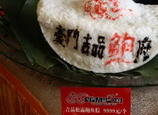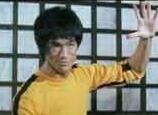
BEIJING, June 7 (Xinhua) -- The yuan is nearing equilibrium, as its rate against the U.S. dollar has hit a new high for 19 times since the beginning of April, experts said.
The central parity rate of the yuan strengthened by 117 basis points to reach a new high of 6.1620 against the U.S. dollar on Friday, according to data released by the China Foreign Exchange Trading System.
In China's foreign exchange spot market, the yuan is allowed to rise or fall by 1 percent from the central parity rate each trading day.
The central parity rate of the yuan against the U.S. dollar is based on a weighted average of prices before the opening of the market each business day.
Since the beginning of the year, the yuan has strengthened by 1,277 basis points, or more than 2 percent, against the U.S. dollar. In contrast, the yuan strengthened by 146 basic points during the whole of 2012.
From the beginning of April to Friday, the yuan hit a historic high for 19 times and advanced by 1,054 basis points.
Tan Yaling, head of the China Forex Investment Research Institute, attributed the yuan's rapid appreciation to lingering expectations for the currency to strengthen, as well as market inertia and speculative activity.
Li Jiangjun, a researcher with the International Finance Institute under the Bank of China, said the stronger yuan is partly due to the impact of hot money, or international speculative capital, in China.
"The problem is rooted in quantitative easing policies in major economies that resulted in excessive liquidity," Li said.
To ward off risks stemming from cross-border capital flows, the State Administration of Foreign Exchange issued a circular on reinforcing the management of foreign exchange capital inflow. The reinforcement became effective on June 1.
Tan said the current exchange rate has deviated from the country's real economy.
"Due to weak demand at home and aborad, China's economy is experiencing a downward trend. This does not support the continuous appreciation of the yuan," Tan said.
Data from the National Bureau of Statistics showed that China's GDP expanded 7.7 percent year on year in the first quarter, down from 7.9 percent reported in the last quarter of 2012.
China has lowered its economic growth target for the year to 7.5 percent, as it is seeking high-quality growth.
The country's central bank said earlier this year that the ratio of China's current account surplus to its GDP has dropped from more than 10 percent in 2007 to 2.6 percent in 2012, the lowest level since 2005.
Li said the yuan's exchange rate is nearing its equilibrium, as an internationally acknowledged rule of thumb states that equilibrium comes when the current account surplus-GDP ratio is around 3 percent.
Tan also said that the yuan is more likely to weaken against the U.S dollar in the latter half of the year.
"Even if the yuan strengthens, there is limited room," Tan said.
China's central bank governor Zhou Xiaochuan said Monday at a conference that China will not resort to the competitive devaluation of its currency.
"Refraining from using competitive devaluation measures is not only conducive to global economic growth, but also to China's economic restructuring," Li said.
China is pursuing a transformation from an export-oriented growth pattern to one driven by domestic consumption, requiring the country to shift from the processing trade with low added value to the export of products with more technological content and added value, Li said.
"By not resorting to competitive devaluation, China is also sending a signal that it will steer away from low-end industries in the future, and thus overseas and domestic capital will choose to invest more in high-end industries," according to Li.
Cao Honghui, an analyst at China Development Bank, agreed, saying that the strengthening yuan will help with China's industrial restructuring, as it forces export enterprises to upgrade their products and change destinations for their exports.
Cao said the country should enhance the monitoring of capital inflow and impose restrictions for capital outflow to ward against the impact of frequent cross-border capital flows.
Li believes that the yuan is gradually approaching its equilibrium level and that appreciation pressure is dropping, as it will be difficult for the country to get back to double-digit economic growth.
"The purpose of China's exchange rate reform is not to force the yuan to appreciate or depreciate, but to ensure that it is determined by market forces," Li said.
The country should foster expectations for two-way foreign exchange rate fluctuation in order to reduce speculation and encourage the healthy growth of the yuan, Li said.
















 Sick girl realizes dream on the stage
Sick girl realizes dream on the stage


![]()
